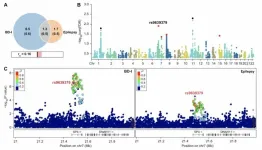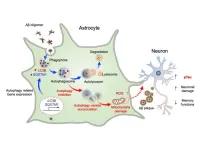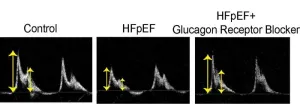(Press-News.org) Kunming, China - A team of researchers from the Chinese Academy of Sciences has uncovered compelling evidence of a genetic link between bipolar disorder type I (BD-I) and epilepsy, potentially revolutionizing our understanding of these complex neuropsychiatric conditions. The study, published in Genomic Psychiatry on September 30, 2024, reveals shared genetic variants and a causal relationship between the two disorders, opening new avenues for research and treatment.
Led by Dr. Ming Li from the Kunming Institute of Zoology, the study utilized genome-wide association study (GWAS) data from European populations, encompassing over 26,000 epilepsy cases and 25,000 BD-I cases, along with their respective controls. The researchers employed advanced statistical methods to uncover the genetic underpinnings shared by these seemingly distinct neurological conditions.
Key findings of the study include:
1. A significant positive genetic correlation (rg = 0.154) between BD-I and epilepsy
2. Identification of approximately 1,300 genetic variants influencing both conditions
3. Discovery of six independent genomic loci significantly linked to BD-I and epilepsy
4. A notable causal effect of epilepsy on BD-I (P = 0.0079)
Dr. Li explains, "Our findings provide a novel rethinking of the connection between epilepsy and bipolar disorder, which aligns with the clinical observation that mood stabilizers are effective in treating both illnesses."
One of the most intriguing discoveries is the role of the SP4 gene, which showed strong associations with both BD-I and epilepsy. The SP4 protein, modulated by neuronal activity, has been linked to mood disorder management through its stabilization by lithium, a common mood stabilizer. This connection raises an important question: Could the SP4 gene be a key target for developing more effective treatments for both bipolar disorder and epilepsy?
The study's implications extend beyond these two conditions. By demonstrating shared genetic underpinnings, it suggests that other neuropsychiatric disorders might have more in common than previously thought. This leads to an intriguing question: How might this genetic overlap inform our understanding of other brain disorders, such as schizophrenia or autism spectrum disorders?
Furthermore, the research highlights the potential for personalized medicine approaches. As Dr. Li notes, "Understanding the genetic basis of these disorders could lead to more targeted treatments based on an individual's genetic profile." This raises another critical question: How can we translate these genetic insights into practical, personalized treatment strategies for patients with BD-I or epilepsy?
The study also sheds light on the complex relationship between mood regulation and seizure activity in the brain. Given the shared genetic factors, researchers are now pondering: What specific neurobiological mechanisms link mood instability in bipolar disorder with the electrical disturbances seen in epilepsy?
While the findings are groundbreaking, the researchers acknowledge limitations, including the focus on European populations and the reliance on public GWAS data without sex-specific information. This opens up avenues for future research: How do these genetic associations manifest across different ethnic groups, and are there sex-specific genetic factors at play in the development of BD-I and epilepsy?
As the scientific community digests these findings, the potential for collaborative research across neurology and psychiatry becomes evident. Could this study catalyze a new era of interdisciplinary research aimed at understanding and treating complex brain disorders?
The peer-reviewed study, “Rethinking the connection between bipolar disorder and epilepsy from genetic perspectives,” published on 30 August 2024 is freely available online at the website of Genomic Psychiatry (Genomic Press, New York): https://gp.genomicpress.com/aop/.
About Genomic Psychiatry – Genomic Psychiatry: Advancing Science from Genes to Society (ISSN: 2997-2388) represents a paradigm shift in genetics journals by interweaving advances in genomics and genetics with progress in all other areas of contemporary psychiatry. Genomic Psychiatry publishes peer-reviewed papers of the highest quality from any area within the continuum that goes from genes and molecules to neuroscience, clinical psychiatry, and public health.
END
Genetic link between bipolar disorder and epilepsy unveiled in groundbreaking study
Chinese researchers identify shared genetic variants and causal relationship, offering new insights into neuropsychiatric disorders
2024-09-30
ELSE PRESS RELEASES FROM THIS DATE:
Social networks help people resolve welfare problems - but only sometimes, new research finds
2024-09-30
Lead researcher Dr Sarah Nason, from Bangor University’s School of History, Law and Social Sciences explained: “Debt, benefits, special educational needs, healthcare issues, these are everyday problems that many of us face, and it’s only natural to turn to people you know and trust for help and advice. However, we found that having to talk to more people or support services was an indicator that the problem was more complex and difficult to resolve.”
The team studied four distinct areas across England and Wales: Bryngwran, a village on Anglesey in North Wales; Deeplish, a district of Rochdale in Greater ...
Honey, I shrunk the city: What should declining Japanese cities do?
2024-09-30
Aging societies and population decline have been on the rise globally, but in Japan, the situation has exasperated tenfold. A staggering 36.21 million people, or 28.9% of the populace, are 65 and over. Further, 74.6% of Japan’s 1,747 cities are categorized as shrinking, with urban policies struggling to keep up with the decline. However, the factors that correlate with population changes in cities of varying sizes have not been clarified.
Dr. Haruka Kato, a junior associate professor at Osaka Metropolitan University, ...
New brain cell cleaner: astrocytes raise possibility of Alzheimer’s disease treatment
2024-09-30
A research team led by Dr. Hoon Ryu from the Korea Institute of Science and Technology (KIST, President Sang-Rok Oh) Brain Disease Research Group, in collaboration with Director Justin C. Lee of the Institute for Basic Science (IBS, President Do-Young Noh) and Professor Junghee Lee from Boston University Chobanian & Avedisian School of Medicine, has uncovered a new mechanism involving astrocytes for treating Alzheimer’s disease (AD) and proposed a novel therapeutic target. In this study, the researchers revealed that autophagy pathway ...
American Academy of Pediatrics announces its first clinical practice guideline for opioid prescriptions
2024-09-30
Media contacts:
Lisa Robinson, lrobinson@aap.org
Alex Hulvalchick, ahulvalchick@aap.org
American Academy of Pediatrics Announces its First Clinical Practice Guideline for Opioid Prescriptions
Pediatricians should prescribe opioids for pain when necessary, with recommended precautions in place to increase safety, according to a clinical practice guideline released during the AAP 2024 National Conference & Exhibition
ORLANDO, Fla.--The American Academy of Pediatrics has published its first clinical ...
Drivers of electric vehicles are more likely to be at fault in road traffic crashes than drivers of petrol and diesel cars
2024-09-30
Drivers of electric vehicles (EVs) are more likely to be involved in at-fault road traffic accidents than drivers of petrol and diesel cars, research by Lero, the Research Ireland Centre for Software, at University of Limerick and Universitat de Barcelona, reveals.
In the analysis of insurance claims and data from onboard sensors, due to be published in the November issue of the journal Accident Analysis & Prevention, the Lero researchers reveal a number of key findings:
Electric and hybrid drivers exhibit different behaviours ...
Duke-NUS study proposes new heart failure treatment targeting abnormal hormone activity
2024-09-30
Duke-NUS scientists and their collaborators have discovered a potential new treatment for heart failure with preserved ejection fraction (HFpEF), a type of heart disease that is notoriously difficult to treat. The team discovered that the diseased heart cells had high levels of glucagon activity, a pancreatic hormone that raises blood sugar (glucose) levels. Armed with this novel insight, the scientists demonstrated that a drug that blocks the hormone’s activity, can significantly improve heart ...
People who experience side effects from cranial radiation therapy may recover full neurocognitive function within months
2024-09-29
WASHINGTON, September 29, 2024 — A substantial number of patients with brain metastases who experience cognitive side effects following radiation therapy may fully regain cognitive function, according to a pooled analysis of three large, phase III clinical trials. Recovery was more likely for people treated with conformal, or highly targeted, radiation techniques, compared to standard whole-brain treatment. The findings will be presented today at the American Society for Radiation Oncology (ASTRO) ...
Radiopharmaceutical therapy offers promise for people with tough-to-treat meningioma brain tumors
2024-09-29
WASHINGTON, September 29, 2024 — A radiopharmaceutical therapy that has successfully extended progression-free survival for patients with neuroendocrine tumors shows early promise for delivering similar benefits to patients with difficult-to-treat meningioma, a type of brain tumor. Findings of the nonrandomized phase II study will be presented today at the American Society for Radiation Oncology (ASTRO) Annual Meeting.
“We’ve found a therapy with a meaningful signal for effectiveness and safety for people with refractory meningioma, a condition with no ...
American Academy of Pediatrics promotes shared reading starting in infancy as a positive parenting practice with lifelong benefits
2024-09-29
ORLANDO, Fla.--The American Academy of Pediatrics encourages parents and caregivers to read aloud with their newborns and young children as an opportunity to foster loving, nurturing relationships during a critical time of brain development, and recommends that pediatricians support families with guidance and books at well-child visits, according to an updated policy statement.
The policy statement, “Literacy Promotion: An Essential Component of Primary Care Pediatric Practice,” marks the first update in AAP recommendations since 2014. Given the extraordinary amount of research in this area, an accompanying ...
Unexpected human behaviour revealed in prisoner's dilemma study: Choosing cooperation even after defection
2024-09-28
The study also examined the impact of different game structures, such as simultaneous versus alternating decision-making, and the option of voluntary participation. The results showed that these variations significantly influence participants' cooperation rate.
The research reveals that people tend to cooperate even after being defected, which contradicts many traditional game theory models. "This finding is particularly fascinating because it suggests that humans are more forgiving and cooperative than previously thought," said Dr. Hitoshi Yamamoto, the study's lead researcher.
The ...
LAST 30 PRESS RELEASES:
How much sleep do teens get? Six-seven hours.
Patients regain weight rapidly after stopping weight loss drugs – but still keep off a quarter of weight lost
GLP-1 diabetes drugs linked to reduced risk of addiction and substance-related death
Councils face industry legal threats for campaigns warning against wood burning stoves
GLP-1 medications get at the heart of addiction: study
Global trauma study highlights shared learning as interest in whole blood resurges
Almost a third of Gen Z men agree a wife should obey her husband
Trapping light on thermal photodetectors shatters speed records
New review highlights the future of tubular solid oxide fuel cells for clean energy systems
Pig farm ammonia pollution may indirectly accelerate climate warming, new study finds
Modified biochar helps compost retain nitrogen and build richer soil organic matter
First gene regulation clinical trials for epilepsy show promising results
Life-changing drug identified for children with rare epilepsy
Husker researchers collaborate to explore fear of spiders
Mayo Clinic researchers discover hidden brain map that may improve epilepsy care
NYCST announces Round 2 Awards for space technology projects
How the Dobbs decision and abortion restrictions changed where medical students apply to residency programs
Microwave frying can help lower oil content for healthier French fries
In MS, wearable sensors may help identify people at risk of worsening disability
Study: Football associated with nearly one in five brain injuries in youth sports
Machine-learning immune-system analysis study may hold clues to personalized medicine
A promising potential therapeutic strategy for Rett syndrome
How time changes impact public sentiment in the U.S.
Analysis of charred food in pot reveals that prehistoric Europeans had surprisingly complex cuisines
As a whole, LGB+ workers in the NHS do not experience pay gaps compared to their heterosexual colleagues
How cocaine rewires the brain to drive relapse
Mosquito monitoring through sound - implications for AI species recognition
UCLA researchers engineer CAR-T cells to target hard-to-treat solid tumors
New study reveals asynchronous land–ocean responses to ancient ocean anoxia
Ctenophore research points to earlier origins of brain-like structures
[Press-News.org] Genetic link between bipolar disorder and epilepsy unveiled in groundbreaking studyChinese researchers identify shared genetic variants and causal relationship, offering new insights into neuropsychiatric disorders




